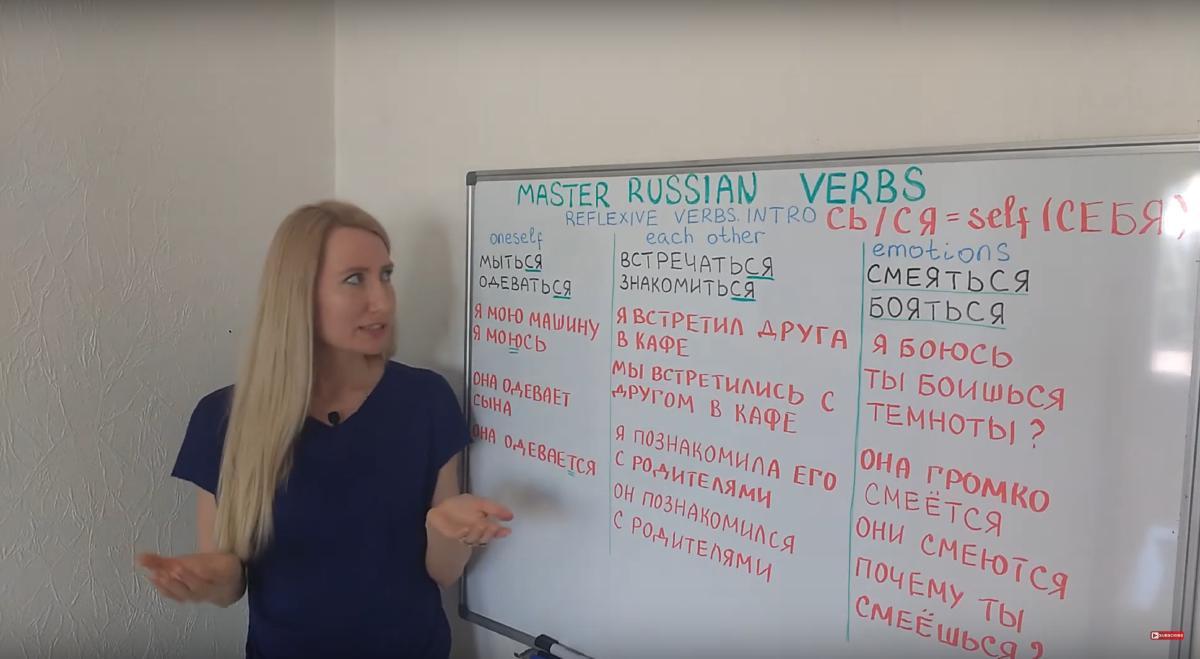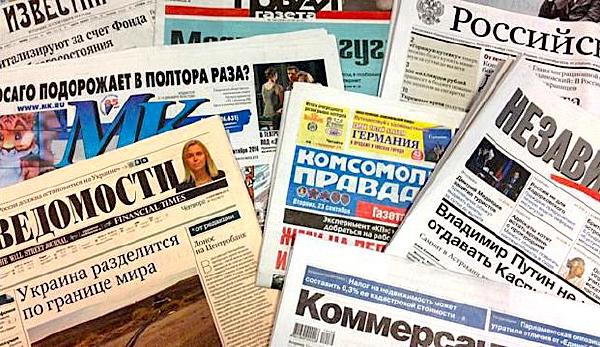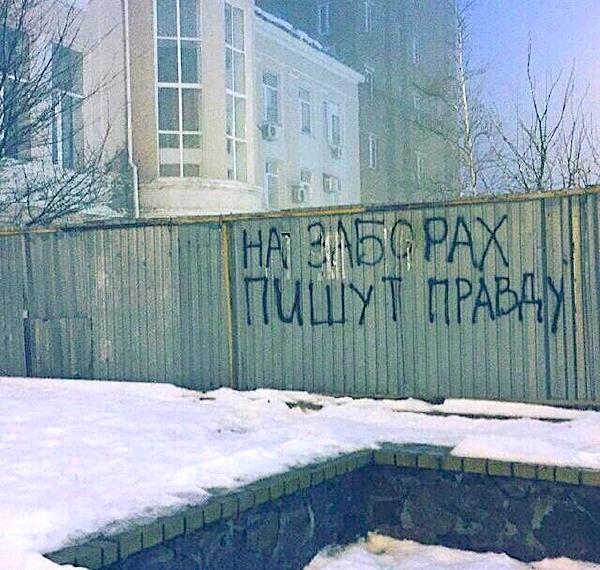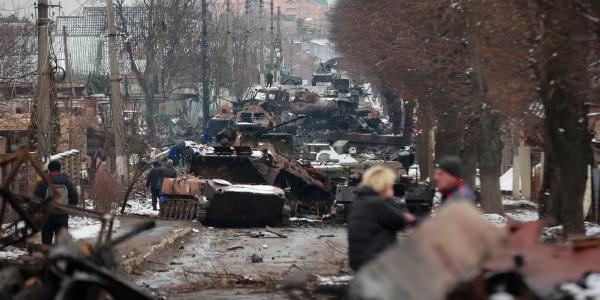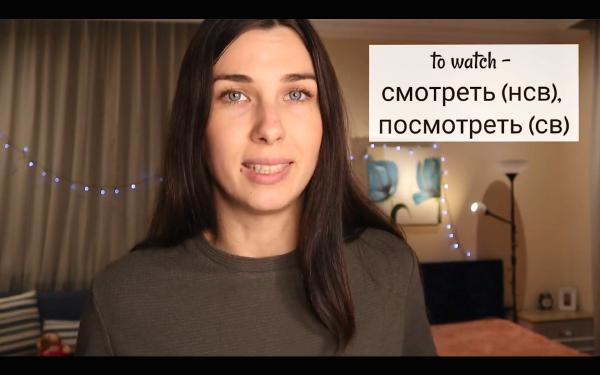Reflexive and Intransitive: Verbs Ending in -ся
Verbs that relate to oneself are called reflexive verbs, in English “reflexive verbs,” and in Russian возвратные глаголы. Reflexive verbs often involve a “zich” (oneself) in Dutch; in Russian, this “self” is represented by the suffix -ся at the end of the verb. For example, мыть means to wash, and мыться means to wash oneself (or yourself).
The sound of я in this context is more like “a” than “ya.” In conjugations, you’ll see both -ся and -сь endings.
Intransitive
These verbs don’t take a direct object. Compare Я открываю дверь (I open the door) with Дверь открывается (the door opens). In the first sentence, открывать is used with the door as the direct object (it’s being opened). In the second sentence, открываться describes the action (opening) affecting the subject itself. This makes the verb intransitive or intransitive.
Conjugations
Conjugating verbs ending in -ся is easy. You follow the same rules as for the verb without -ся. Then, you simply add either -ся (after a consonant) or -сь (after a vowel).
Check out Russian verbs. 1st conjugation. Reflexive forms (Maria Zakharova, 2020, 19 m) and Russian Reflexive Verbs / Russian Lessons Online (russianwithrussian, 2017, 3 m).
With and Without -ся
Always -ся
Some verbs always end in -ся and don’t have a non-reflexive counterpart. Examples include смеяться (to laugh), улыбаться (to smile), and бояться (to fear).
Vocabulary
Here are 46 reflexive verbs for everyday use (для ежедневного употребления) in the video below (2020, 10 m).
просыпаться, умываться, готовиться, одеваться, собираться, учиться, спускаться, добираться, улыбаться, подниматься, находиться, приниматься, здароваться, стараться, знакомиться, общаться, видеться, переписываться, созваниваться, увлекаться, смеяться, заниматься, интересоваться, нравиться, слушаться, радоваться, бояться, закупаться, расплачиваться, прибираться, кататься, наслаждаться, прощаться, возвращаться, раздеваться, закрываться, мыться, вытираться, расчёсываться, мазаться, смотреться, валяться, расслабляться, ложиться, вырубаться, оставаться.
From the same channel: Возвратные глаголы / грамматика русского языка (2017, 12 m).
Live Reflexive
Get acquainted with Live Russian in Reflexive verbs (2018, 6 m). Also, check out their Russian Morning Routine Song Reflexive Verbs (2020), featuring kids and verbs like просыпаться, улыбаться, умываться, одеваться, and собираться. See also Reflexive verbs / Daily routine (2018, 6 m) and Reflexive verbs / Greeting traditions (2018, 4 m).
More
- Verbs with -СЯ (Part 1) (Russian with Anastasia, 2020, 41 m), see also Part 2, Part 3, Part 4, and more.
- Reflexive Verbs (Russline, 2020, 4 m)
- Intermediate Russian: Reflexive Verbs (Amazing Russian, 2018, 16 m), from the same channel: Passive Constructions with Reflexive Verbs (2020, 11 m)
- Reflexive verbs (R for Russian, 2018, 18 m), see also Part 2 (2018, 24 m)
- How to use reflexive verbs in Russian language (Russian to the World, 2018, 5 m)
- Reflexive Verbs with -СЯ (Be Fluent in Russian, 2017, 9 m), from the same channel: Conjugating -СЯ (2017, 12 m)
- Russian Reflexive Verbs (Antonia Romaker), see also Part 2 and Part 3
- Verbs with postfix -СЯ, -СЬ (Reflexive verbs). Russian grammar (Ru-Land Club, 2016, 8 m)
- ся / сь: Reflexive Verbs in Russian (Russian with Tatiana, 2016, 9 m)
- Russian verbs: встречаться, улыбаться, возвращаться, ошибаться, кататься (learnrussian.org, 2016, 9 m)
More


